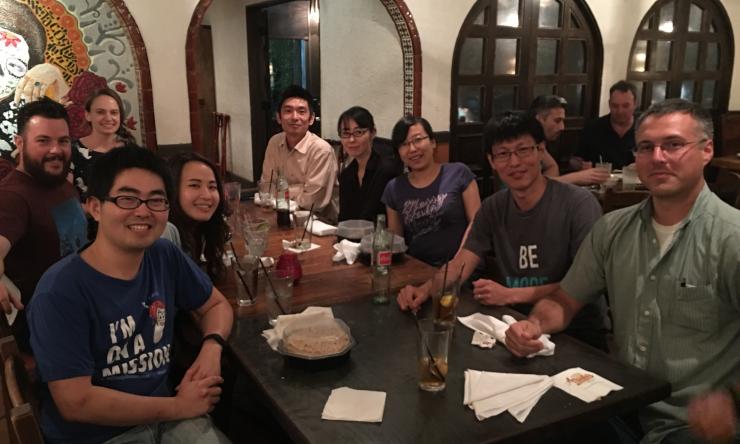About the Lab
Hematopoietic stem cells (HSCs) are immature progenitor cells that are responsible for replenishing blood cells that are lost during homeostasis, and become activated upon inflammation or injury to promote regeneration. HSCs are multipotent and have the full developmental potential to differentiate into all blood cells types, and persist throughout life through a cell division mechanism called self-renewal. Differentiation and self-renewal often go awry in blood cancer, or leukemia, to enable unlimited proliferation of malignant blood cells.
The focus of our lab is to study the molecular and cellular mechanisms that regulate self-renewal and differentiation in HSCs and leukemia. We use mouse genetics, genome-editing tools, and epigenome profiling to understand how physiological changes and stress conditions stimulate HSCs. We also study how mechanisms that regulate HSCs go awry to cause leukemia.
Our recent study indicates that leukemia cells rely on particular metabolic and epigenetic master regulators to support their unlimited proliferative capacity and to block differentiation. By studying differentiation and self-renewal mechanisms in normal stem cells and cancer cells, we seek to identify key differences that could be targeted to promote regeneration by normal stem cells, and suppress cancer by disabling the aberrant stem cell mechanisms.

Nakada Lab Members
The Nakada lab enjoyed a lunch outing to celebrate lab member's papers being accepted for publication.
Protocol
Genome editing of murine hematopoietic stem and progenitor cells using CRISPR/Cas9









